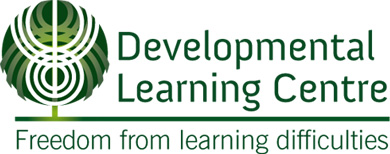What is Autism?
Autism (or Autistic Spectrum Disorder) covers a range of developmental disorders characterised by widespread abnormalities of social interactions and communication, severely restricted interests and highly repetitive behaviour. This includes individuals who are non- communicative or mute at one end of the spectrum and those who are gifted or with genius IQ with mild autism at the other.
How do I know if my child has Autism?
An Autisic child will demonstrate some of the following characteristics. It is important to note that many of the symptoms below are shared with other categories of learning difficulties and may indicate common, underlying developmental or auditory processing delays. Why not take our FREE online test to understand if your child is displaying common symptoms of learning or behavioural difficulties and to understand if your child would benefit from our natural and holistic therapies.
Your child will have shown significant a delay in the development of language from an early age, with delay in the emergence of the following milestones:
• No babbling by 12 months.
• No gesturing (pointing, waving, etc.) by 12 months.
• No single words by 16 months.
• No two-word (spontaneous, not just echolalia) phrases by 24 months.
• Any loss of any language or social skills, at any age.
If your child is showing a significant language development delay, your GP will refer you to a paediatrician for diagnosis. Diagnosis can be difficult as there is a wide range of symptoms and characteristics in Autistic Spectrum Disorder. However a diagnosis is usually made by the age of 3 years for classic Autistic Spectrum Disorder and by 5-6 years for milder forms of autism such as Asperger’s Syndrome.
In addition to these language and social delays most children on the spectrum also have sensory hypersensitivity, especially to sound. They may react to specific or loud sounds by withdrawing or becoming highly anxious and overwhelmed. Their language delay may be attributed in part to this hypersensitivity, which limits the development of the auditory processing skills required for communication and language to develop. They also may have many of the characteristics seen on children with other learning difficulties, indicating a common, underlying neuro- developmental or auditory processing delay.
Clinicians world -wide are finding auditory retraining therapy to be of great help to children on the autistic spectrum, as low frequency sound in particular has a strongly calming effect on their hypersensitive sensory systems, reducing anxiety and improving their ability to process spoken language more effectively.
How can the Developmental Learning Centre help?
We primarily offer two therapies for children with learning and behavioural difficulties:
Developmental Movement Therapy
Can you imagine trying to build a house without putting in a firm foundation? Trying to remediate a child who simply does not have the equipment (wiring) and foundation (mature neurological system, good spatial awareness, listening skills and visual perception) for their “house of learning” is very difficult.
At the Developmental Learning Centre, we believe our first task is to in address the underlying immaturities to develop a good neurological foundation. To do this we use Developmental Movement Therapy (Extra LessonTM). Central to this therapy is the idea that learning and behavioural difficulties are a result of developmental issues in a child’s early years. This means they may not have received some of the sensory input they needed that form the basis of our learning processes. By repeating early childhood movement patterns, we are able to ‘rewire’ brain and rebuild the pathways and foundation of learning.
Click here to learn more about Developmental Movement Therapy and the amazing results it can have by reading our Success Stories here.
Auditory Retraining Therapy
If your child has learning difficulties, it may be a result of an auditory processing difficulty or disorder, and they will be likely to benefit from Auditory Retraining Therapy. This therapy uses filtered music to mature the pathways in the brain needed to recognise different sounds when reading and spelling and to process spoken language quickly and efficiently. Music therapy is also used to treat children who are easily overwhelmed, hypersensitive and anxious, and have difficulty regulating their emotions.
It is relatively new and is not used by audiologists and speech and language therapist in NZ as a rule. In fact your GP, your audiologist and your speech and language therapist may not have heard of it. However it has been in existence for approximately 40 years. It was developed by a French ear nose and throat specialist, Dr Alfred Tomatis (www.tomatis.com ) and is incredibly effective for children with auditory dyslexia.
You can learn more about Auditory Retraining Therapy and the amazing results it can have by reading our testimonials or watch the video below:
Does your child display symptoms of Autistic Spectrum Disorder?
Call 0800 543 399 or Request a free call back with the Developmental Learning Centre to understand if how your child could benefit from our natural and holistic therapies.
